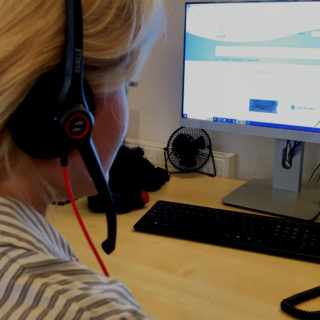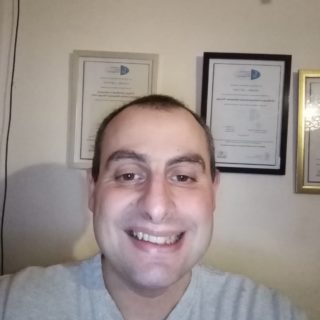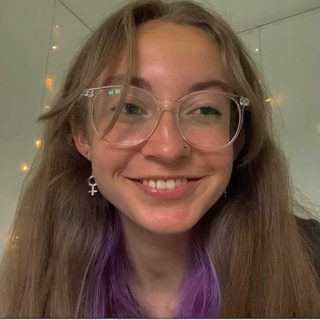Anxiety and modelling: Simon Clark’s story
Simon Clark is one of the most iconic faces in male modelling. But, behind his successes as the face of Mont Blanc, Simon has lived with anxiety his entire life. Simon spoke to SANE about what it was like growing up with anxiety in the 1970s, how modelling has affected his mental health and how he lives with anxiety today.
Hi Simon! Thanks so much for agreeing to speak to us at SANE today, and for trusting us with your mental health story. To begin with, please could you tell me a little more about your journey with anxiety?

Hi there – it’s a pleasure to chat. Well, I’ve been an anxious person since I can remember, from being three years old. It’s a funny thing because anxiety is a very real condition that, in my experience, basically goes undiagnosed. I don’t think in any point in my journey with therapists and with GPs, no one has ever really said “this is what you categorically suffer with”, such as an anxiety disorder – it’s alluded to but not really given a medical diagnosis. So, I was a very anxious child, probably with learning difficulties which were undiagnosed as well and in the 1970s you were considered to be remedial, not very bright. It was that real struggle early on at school, with processing and being slow to process, and then I got those labels of being ‘thick’.
As a child, how did you cope with these feelings?
Then it becomes a way of finding your own way of coping, as there wasn’t much help at school, so that’s when your own coping strategies fit in. As a child, for me coping strategies were imaginary friends and even lying, lying in order to not be too much of a burden. Some people could see lying as a deceitful thing but it wasn’t like that, it was a way of not being too much of a burden, as an awkward difficult child who is full of anxiety. Being that sort of child in the 1970s, you were punished for that.
Did you know anyone else in your family who suffered with these feelings of anxiety?
I was definitely an outlier, my brother and sister are pretty stoic and laid back and I seemed to get all the nervous energy. There might have been something going on with my parents but they were working class – they were the generation of working class who grew up with really strong aspirations to be middle class, so that was their journey and that was what was going to make everything alright, if you just got your head down and worked hard, that was going to make everything okay. And mental health, if there were any issues around mental health it was very much considered to be a weakness, with all those associations of being neurotic and weak.

Transitioning from a child into a teenager and then young adult, did your anxiety present in a different way?
There was a lot of drinking early on which was easy to hide because it felt like everyone was drinking then, I didn’t really associate alcohol with my anxiety, although it was definitely something that I suppose gave me more confidence. It didn’t feel like I was medicating myself but it definitely gave me the confidence to function better. But, reflecting on it now, being teetotal and not having had a drink in 15 years, it was more complicated. What’s ironic is that alcohol does ‘help’ anxiety in the short term, in the moment when you’re suffering from an anxiety attack. That’s what started to happen to me in my early 20s, I started to get these panic attacks which I wouldn’t wish on my worst enemy, and they used to come out of nowhere and that’s when the real battle started and alcohol was something that I depended on. But this mixture of alcohol and anxiety… It would have ended me. I don’t think I would be alive today if I’d carried on drinking.

At this point in your life, you started your career in modelling. How do you think that impacted your mental health?
It’s an interesting question – I think to people who haven’t modelled and look from the outside at modelling, you can probably pick a load of things that you might imagine could happen to that person, the pressure of living off your looks, and I suppose I suffered from all those things and just sort of coped with it as best I could. Would I have been better off if I’d had a more conventional career? It’s hard to say, and with modelling you start at the top and work your way down, which is the opposite to most careers, and you can imagine how much anxiety that can create. It’s a double edged sword, because when you’re young you get discovered, you’re the next big thing, agencies are all over you and the press and you’re doing all these campaigns, and then slowly over time you become used up and overexposed. But the thing I offset that with is modelling gives you loads of free time to do other things, so if I had been a high flying lawyer, maybe, who’s building a practice and a solid foundation throughout their career, I don’t know whether I would have been more anxious because I wouldn’t have had the free time to do the things which have helped my anxiety.
So what are the things you do now to help your mental health?
I’ve developed huge coping strategies over my life and as the anxiety builds, the coping strategies build alongside them. So literally so many things, like mountaineering, climbing, cycling, skiing, decorating, mowing the lawn, rollerblading – the thing I haven’t really dealt with yet is stillness.

If you could say anything to people living with anxiety, what would it be?
I live with anxiety on a daily basis. I think what helped me was this knowledge that anxiety isn’t neurosis, it’s not weakness, it’s not remedial, it’s not this or that – it’s sensitivity. That’s why therapy works, because you really need to study yourself and not compare yourself. And this world we live in now and the world kids are growing up in at the moment… Just think about what the stoics taught for 2,000 years: stillness, mindfulness and just quietly getting on with it. Now, you have social media platforms such as Instagram which is the absolute opposite of that – it’s all about achievement and pressure to look successful, so I would say steer clear of that! But as far as anxiety goes, I think just understanding you are an anxious person: that it’s part of your personality and your make-up. It’s something that maybe will never go away, but you’ll learn to live with. If you’re looking for a cure, I don’t know whether there is one, but just learning to think, “I’m anxious, but I’m alright” – that works for me.
Further reading:
Emotional support – SANE – If, like Simon, you struggle with anxiety, you are not alone. Find out about the emotional support SANE provides here.
Anxiety – Every Mind Matters – NHS (www.nhs.uk) – Learn more about managing anxiety here.





